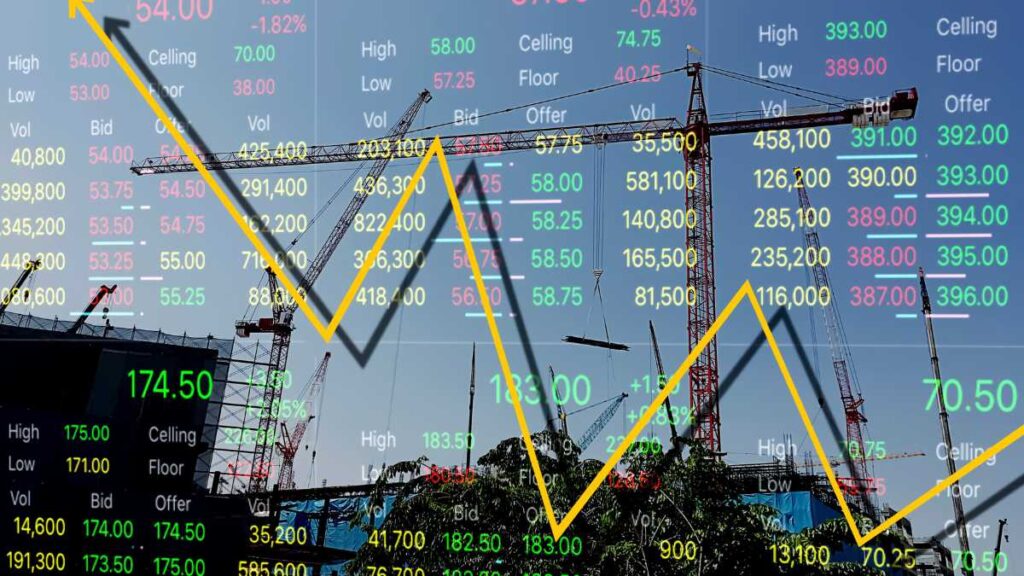The UK economic growth rate declined in January 2025, with GDP shrinking by 0.1%, according to the latest data from the Office for National Statistics (ONS). This unexpected contraction follows a 0.4% growth in December 2024, raising concerns about the economy’s stability.
What is GDP and Why Does it Matter?
Gross Domestic Product (GDP) measures the total value of goods and services produced in a country. It reflects the economic activity of businesses, the government, and individuals. The ONS releases monthly GDP updates, but quarterly figures are more significant for understanding long-term trends.
A rising GDP generally means higher consumer spending, increased employment, and better wage growth. However, a declining GDP signals a weakening economy, potentially leading to job losses, pay freezes, and lower tax revenues for the government.
When GDP contracts for two consecutive quarters, the country officially enters a recession. This can force the government to cut spending or increase taxes to balance the economy.
The UK’s Recent Economic Performance
The UK economy experienced strong growth in early 2024, recovering from a brief recession in late 2023. Key GDP figures include:
- Q1 2024: Growth of 0.7%
- Q2 2024: Growth of 0.5%
- Q3 2024: Zero growth
- Q4 2024: Slight improvement with 0.1% growth
Despite this rebound, growth has slowed in 2025, with January’s contraction raising concerns about the UK’s economic stability.
Factors Impacting UK Economic Growth
Several factors contributed to January’s decline in GDP:
- Weak performance in construction and oil and gas extraction
- Higher business costs, including rising wages and national insurance contributions
- Increased energy and water bills for households
- US trade tariffs impacting import and export costs
Although consumer spending remained strong, it was not enough to offset weaknesses in other sectors.
Government and Bank of England Forecasts
The UK government has prioritised economic growth, but challenges remain. The Bank of England recently halved its growth forecast for 2025, lowering its expectation from 1.5% to 0.75%.
The Office for Budget Responsibility (OBR), which evaluates government spending and economic performance, is expected to release revised growth projections on 26 March 2025. These forecasts will shape future government decisions on taxation, spending, and business support.
How Does GDP Impact Everyday Life?
The state of the UK economic growth affects individuals in many ways:
- Higher GDP: More job opportunities, increased wages, and better public services funded by tax revenues.
- Lower GDP: Job losses, stagnant wages, and potential government spending cuts.
For example, the COVID-19 pandemic led to the worst UK recession in 300 years, forcing the government to borrow billions to support businesses and households. Economic fluctuations impact everything from interest rates to the affordability of goods and services.
Measuring GDP: A Closer Look
The ONS calculates GDP using three methods:
- Output approach – The total value of goods and services produced across sectors like manufacturing, construction, and services.
- Expenditure approach – The value of spending by households, businesses, and the government, plus net exports.
- Income approach – The total earnings from wages and business profits.
Although early estimates are based mainly on output data, they are revised as more information becomes available.
Limitations of GDP as a Measure
While GDP is the most widely used indicator of economic performance, it has limitations:
- It excludes unpaid work, such as childcare and elderly care.
- It doesn’t measure wealth distribution, meaning growth may benefit only a small segment of the population.
- It ignores environmental impact, raising concerns about sustainable development.
To address these shortcomings, the ONS also tracks well-being indicators, measuring factors like health, education, and financial security alongside GDP.
The Road Ahead for the UK Economy
The UK economic growth outlook remains uncertain. While some sectors continue to expand, inflation, high business costs, and global trade challenges pose risks.
The government and Bank of England must now balance economic stimulus with inflation control. The next GDP updates will be crucial in determining whether the UK economy can regain momentum or if further slowdowns lie ahead.




